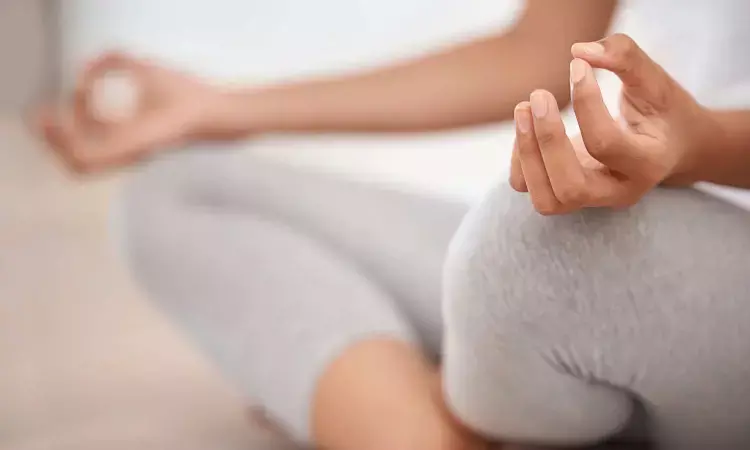- Home
- Medical news & Guidelines
- Anesthesiology
- Cardiology and CTVS
- Critical Care
- Dentistry
- Dermatology
- Diabetes and Endocrinology
- ENT
- Gastroenterology
- Medicine
- Nephrology
- Neurology
- Obstretics-Gynaecology
- Oncology
- Ophthalmology
- Orthopaedics
- Pediatrics-Neonatology
- Psychiatry
- Pulmonology
- Radiology
- Surgery
- Urology
- Laboratory Medicine
- Diet
- Nursing
- Paramedical
- Physiotherapy
- Health news
- Fact Check
- Bone Health Fact Check
- Brain Health Fact Check
- Cancer Related Fact Check
- Child Care Fact Check
- Dental and oral health fact check
- Diabetes and metabolic health fact check
- Diet and Nutrition Fact Check
- Eye and ENT Care Fact Check
- Fitness fact check
- Gut health fact check
- Heart health fact check
- Kidney health fact check
- Medical education fact check
- Men's health fact check
- Respiratory fact check
- Skin and hair care fact check
- Vaccine and Immunization fact check
- Women's health fact check
- AYUSH
- State News
- Andaman and Nicobar Islands
- Andhra Pradesh
- Arunachal Pradesh
- Assam
- Bihar
- Chandigarh
- Chattisgarh
- Dadra and Nagar Haveli
- Daman and Diu
- Delhi
- Goa
- Gujarat
- Haryana
- Himachal Pradesh
- Jammu & Kashmir
- Jharkhand
- Karnataka
- Kerala
- Ladakh
- Lakshadweep
- Madhya Pradesh
- Maharashtra
- Manipur
- Meghalaya
- Mizoram
- Nagaland
- Odisha
- Puducherry
- Punjab
- Rajasthan
- Sikkim
- Tamil Nadu
- Telangana
- Tripura
- Uttar Pradesh
- Uttrakhand
- West Bengal
- Medical Education
- Industry
Relaxation exercise and meditation improves IOP in glaucoma patients

A systematic review published in the Canadian Journal of Ophthalmology highlights the potential of relaxation techniques as a complementary approach to managing glaucoma. By incorporating practices such as meditation, visual imagery, and specific relaxation exercises, patients may experience significant reductions in IOP. The review by a team led by Omar Zaher analyzed multiple studies and identified several relaxation methods that significantly reduced IOP levels in glaucoma patients.
The research team performed a comprehensive literature search through various databases, including CINAHL, MEDLINE, EMBASE, ClinicalTrials.gov, ProQuest Dissertations and Theses Global, and conferences, up until July 2022. Utilizing the Covidence software, the systematic review was conducted with the involvement of two independent reviewers. Additionally, a risk-of-bias assessment was completed following data extraction, and Stata Statistical Software was employed to conduct a meta-analysis.
Qualitative analysis included twelve articles comprising 596 subjects, while quantitative analysis involved five articles with 332 subjects. The findings demonstrated that one hour of daily mindfulness meditation for three weeks yielded the most significant reduction in IOP, showing a remarkable decrease of 31.8%. Moreover, meditation consistently led to long-term reductions in IOP, with a standardized mean difference ranging from –3.16 to –0.89.
Autogenic relaxation exercises also exhibited a trend toward acute IOP reduction and significant long-term reduction. Ocular relaxation exercises combined with visual imagery of aqueous humor drainage resulted in both acute and long-term decreases in IOP. However, it was noted that the effects of yoga on IOP could vary depending on the specific positions practiced.
These promising findings suggest that various relaxation techniques, including meditation, visual imagery, autogenic relaxation exercises, and ocular relaxation exercises, have the potential to significantly reduce IOP levels in glaucoma patients. However, the researchers emphasize the need for future randomized, controlled trials to further explore and confirm the utility of these techniques in the management of glaucoma.
Glaucoma, a group of eye conditions that can lead to optic nerve damage and vision loss, affects millions of people worldwide. Elevated IOP is a significant risk factor for glaucoma progression. While current treatment options primarily focus on reducing IOP through medications or surgery, these findings open up new possibilities for non-pharmacological interventions that could complement existing therapies.
Source:
Zaher, O., Kuchtaruk, A. A., & Malvankar-Mehta, M. S. (2023). Effect of various relaxation techniques on the intraocular pressure of patients with glaucoma: systematic review and meta-analysis. In Canadian Journal of Ophthalmology. Elsevier BV. https://doi.org/10.1016/j.jcjo.2023.06.007
Neuroscience Masters graduate
Jacinthlyn Sylvia, a Neuroscience Master's graduate from Chennai has worked extensively in deciphering the neurobiology of cognition and motor control in aging. She also has spread-out exposure to Neurosurgery from her Bachelor’s. She is currently involved in active Neuro-Oncology research. She is an upcoming neuroscientist with a fiery passion for writing. Her news cover at Medical Dialogues feature recent discoveries and updates from the healthcare and biomedical research fields. She can be reached at editorial@medicaldialogues.in
Dr Kamal Kant Kohli-MBBS, DTCD- a chest specialist with more than 30 years of practice and a flair for writing clinical articles, Dr Kamal Kant Kohli joined Medical Dialogues as a Chief Editor of Medical News. Besides writing articles, as an editor, he proofreads and verifies all the medical content published on Medical Dialogues including those coming from journals, studies,medical conferences,guidelines etc. Email: drkohli@medicaldialogues.in. Contact no. 011-43720751


